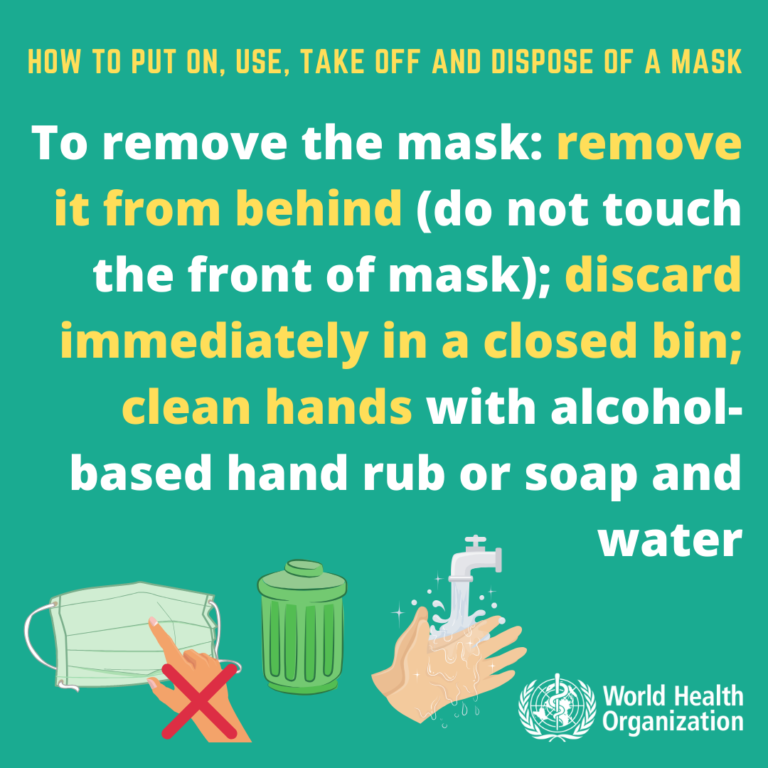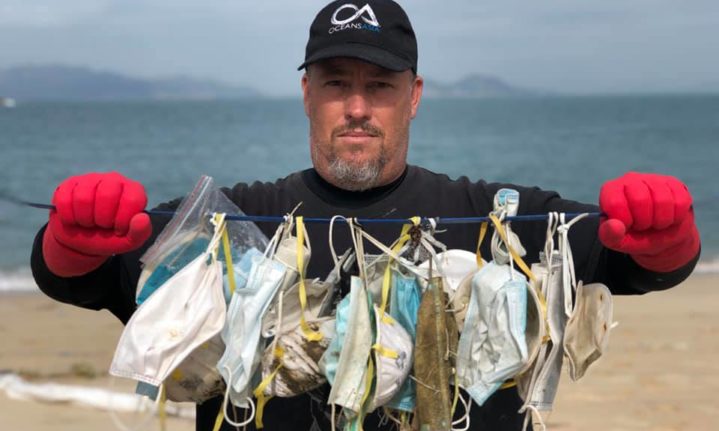Face masks have become part of the new normal in most countries as a result of government mandate. Personal protective equipment (PPE) like masks, while necessary, are not being discarded properly. These single-use items wind up along coastlines and in the ocean, contributing to the oceanic waste crisis.
Plastic pollution is one of the biggest threats to our oceans. Disposable masks are manufactured using non-woven fabrics that are made from a plastic known as polypropylene. Therefore these items are not biodegradable.
The use of latex gloves have also increased globally. The Centers for Disease Control (CDC) has never recommended the use of gloves for general activities, like going to the grocery store, but rather only for when caring for someone sick or when cleaning.
‘Wearing gloves outside of these instances (for example, when using a shopping cart or using an ATM) will not necessarily protect you from getting COVID-19 and may still lead to the spread of germs. The best way to protect yourself from germs when running errands and after going out is to regularly wash your hands with soap and water for 20 seconds or use hand sanitizer with at least 60% alcohol,’ said the CDC.
OceanAsia, an ocean conservation organisation, posted photos on Facebook in February of masks littering a beach in Hong Kong.
In an interview with the Independent, OceanAsia co-founder Gary Stokes said: ‘The way I see these masks in the environment is just another addition to the ever-growing marine debris crisis our oceans are facing. No better, no worse, just shouldn’t be there in the first place. I’m waiting to hear of the first necropsy that finds masks inside a dead marine animal. It’s not a question of if, but when.’
Maria Algarra, the founder of Clean This Beach Up in the Miami, USA took to social media to document PPEs littering a local beach.
The CDC recommends the use of cloth face masks as a preventative measure of contracting COVID-19. Cloth masks can be washed and reused and can be made from repurposed household items. ‘Cloth face coverings provide an extra layer to help prevent the respiratory droplets from traveling in the air and onto other people.
‘The cloth face coverings recommended are not surgical masks or N-95 respirators. Those are critical supplies that must continue to be reserved for healthcare workers and other medical first responders, as recommended by current CDC guidance,’ says the CDC.
Unique Waste Solutions director Divan Botha spoke to IOL about the increasing issue of incorrectly disposed PPE and the threat it poses in spreading COVID-19.
‘We’ve seen that the virus can live longer on certain items depending on the surface. If they don’t dispose of protective equipment in the correct manner, it can immediately put other people in danger if they come close to those masks and gloves. If children are found playing with those things and touch their mouths, eyes and noses, they could contract the virus.
‘If people throw them (masks, gloves) into a regular municipal dustbin, then all the people who collect the rubbish and the people who go through dustbins for recycled goods are at risk. It creates a snowball effect and makes everything worse,’ said Botha.
To properly dispose of gloves and masks, the World Health Organisation recommends doing so in a closed bin.

Image credit: WHO

Image credit: WHO
Image credit: Facebook/ OceanAsia





















